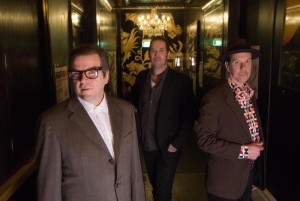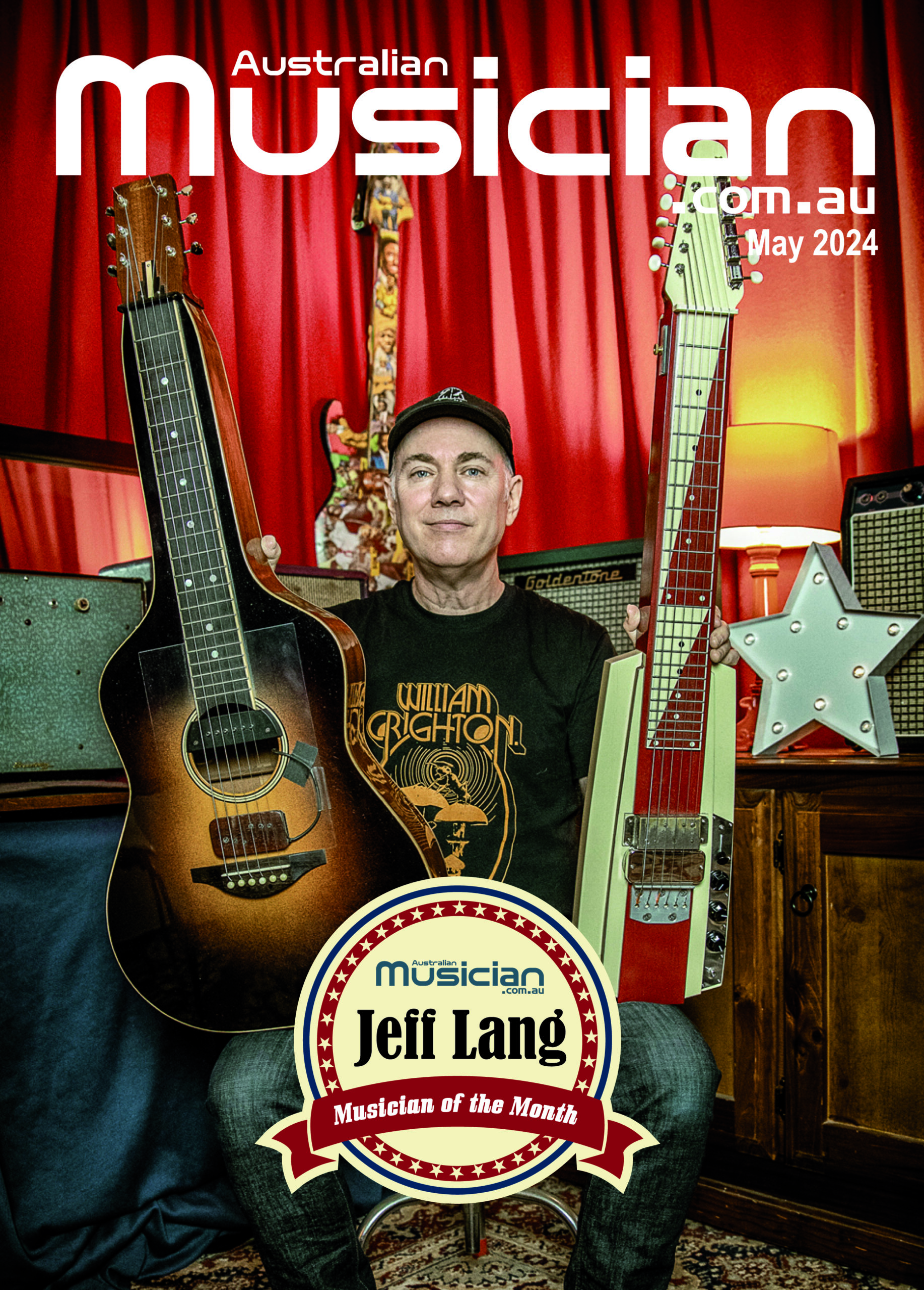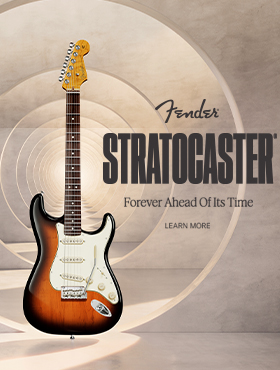JAMES BLACK-ROCKWIZ
November 24, 2006 | Author: Steve Tauschke
 Guitarist James Black, house band leader of Melbourne’s RocKwiz Orkestra, from SBS’s popular musical quiz show, speaks to Australian Musician about riff cues, ‘hotcakes’ and playing to a quarter of a million fans!
Guitarist James Black, house band leader of Melbourne’s RocKwiz Orkestra, from SBS’s popular musical quiz show, speaks to Australian Musician about riff cues, ‘hotcakes’ and playing to a quarter of a million fans!
How did you become involved in the RocKwiz and the Orkestra?
“(Kwiz brainchild) Brian Nankervis asked me and the others because he was a fan of our playing style and he had a feeling that we would work well together. Early on we made a conscious decision to limit the size of the band to a three piece. The producers had wanted a bigger band and SBS had requested the addition of a female musician (they even suggested a flautist would be suitable!). I feel that part of the success of the format comes from keeping the size of the Orkestra really small. We have to make a song work in a way that reveals our personality, we can’t reproduce a large recording .. but the pay-off of the restriction is that we can quickly create arrangements out of thin air and modify them easily. This is great in our duets because often the artists have not met each other and don’t know what key they want to do the song.”
Is there a television house band you especially admire?
“Yes. I am a huge fan of Saturday Night Live band. It’s been led by different people at different times. The Paul Schaeffer-era was pretty good. The SNL band was famous for its great grooves and soulful playing. I was also a fan of an LA TV show (I can’t recall its name) with one of the young Zappas in the house band. This was a real loose, wild rocking TV band.”
What would you rate as some of the highlights from your time on the RocKwiz?
“I remember the night Angry and Sarah McLeod did ‘Highway to Hell’. We had a bit of trouble finding a suitable duet. Finally Angry came up with his AC/DC suggestion. We all went “YEAH” Sarah happens to play an SG Gibson and I have a Gretsch- that happens to be the basis of the AC/DC guitar sound. As soon as we started to rehearse everyone on stage looked at each other with big grins on their faces. It was just a great moment.”
So what sort of a rehearsal process is involved in perfecting the musical cues heard on the show?
“There are two types of cues. The first are playoffs and riffs (part of the Million Dollar Riffs section). We come up with ideas for riffs in the band and we workshop them and make sure we can perform them with our line-up. We try and cover a really wide range of eras and styles from dumb pop songs to very cool stuff. Again the restriction is what we can do with our line-up of organ, guitar, bass and drums. The other type of cues are backing the singers. At the opening of the show, we try and do two-minute versions of songs that the artists are famous for. I hope that later in the year that SBS are going to make a program of a collection of these short versions. I am very pleased with a lot of these.”
How did you approach the production side of the RocKwiz compilation album? Do you have a particular production style per se?
“I guess I probably do have a production style, but I would find it hard to define it. Over the years I’ve produced records for Mondo Rock, The Black Sorrows, Things of Stone and Wood, The Hiptones and quite a few roots and jazz-style CDs. I like to change who I work with and how I perceive each production in a way that suits each artist and what they are trying to do. With RocKwiz I tried to mix the recordings without trying to make them sound too live. Most people don’t like to listen to live recordings repeatedly so I kept the audience and the sound of the room to a minimum. The album is simply a compilation of duets from the show.”
So tell us about some of your gear … your favourite guitars and amps and why you enjoy using them? Is there a special guitar that’s been with you through the years?
“I usually use a no-name brown amp, probably a Maton from the 40s, with a single 12″ Rola. Occasionally it gets upset from the punishment inflicted on it, especially if the artist we are working with is of ‘a heavy disposition’. If the amp is complaining or the sound is not powerful enough I pull out my Fender Pro Junior. It’s fairly new, you can still buy ‘em and they sound great when miked up and put through a PA .
“I use a Fernandes Telecaster copy made in Japan. I got it from the factory in the 1980s when I was playing with Men At Work on a Japanese tour. They brought along a bunch of guitars for us to try. I strummed it acoustically and said ‘that’s for me!’. All the other guitars had fancy pickups and wang bars but this guitar was an experiment on their part to reproduce an early model Telecaster. It’s a beauty, I like it a lot. It’s my favourite guitar even though I used to own a 1954 Stratocaster!
“I also use a Hotcake, made in NZ by an ex-member of Split Enz. The same design since the 70s, still made on their kitchen table I believe. It is a killer distortion pedal. You add distortion and the bottom end stays in the sound (unlike tube screamers). I am not a big fan of digitally programmed sound devices, they can create a lot of sounds but they are like wearing a straitjacket. Cramps your playing I reckon.”
Any crazy anecdotes worth sharing, musical or otherwise, from your time roaming the world with Men At Work and Ganggajang?
“In the eighties I toured with Men At Work. My strangest memory of that is playing to 250,000 people in Puerto Rico. We were separated from the crowd by armed soldiers and a 20-foot deep concrete moat. It was so surreal I can’t remember anything much about the music that night.”
RocKwiz Duets is out through Liberation. RocKwiz screens on SBS.


